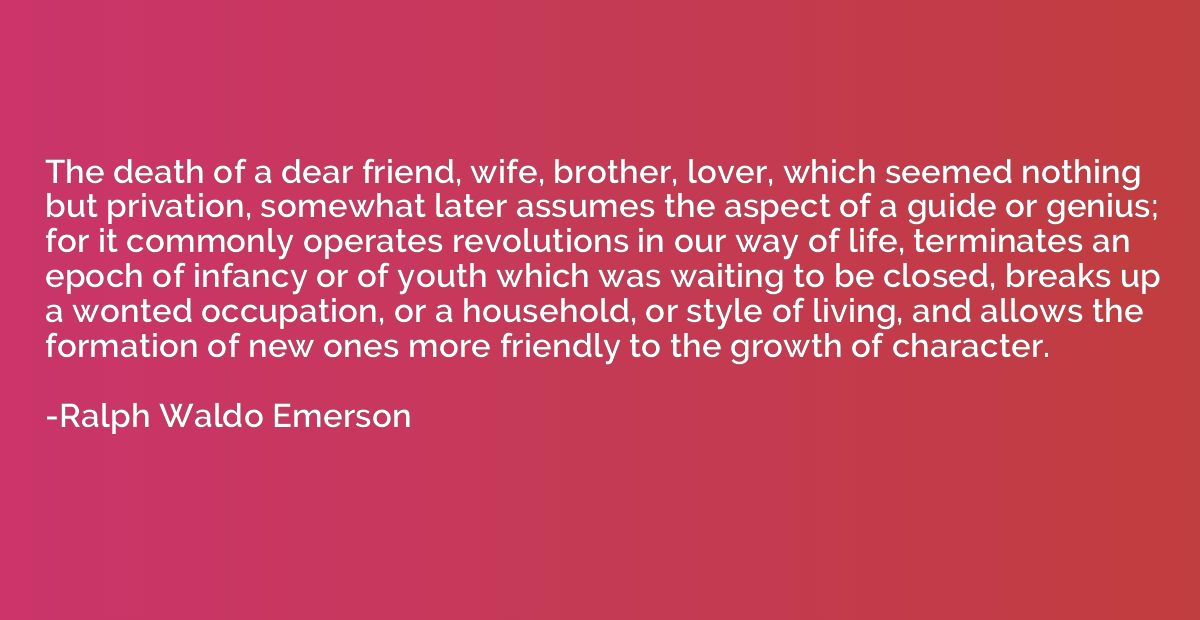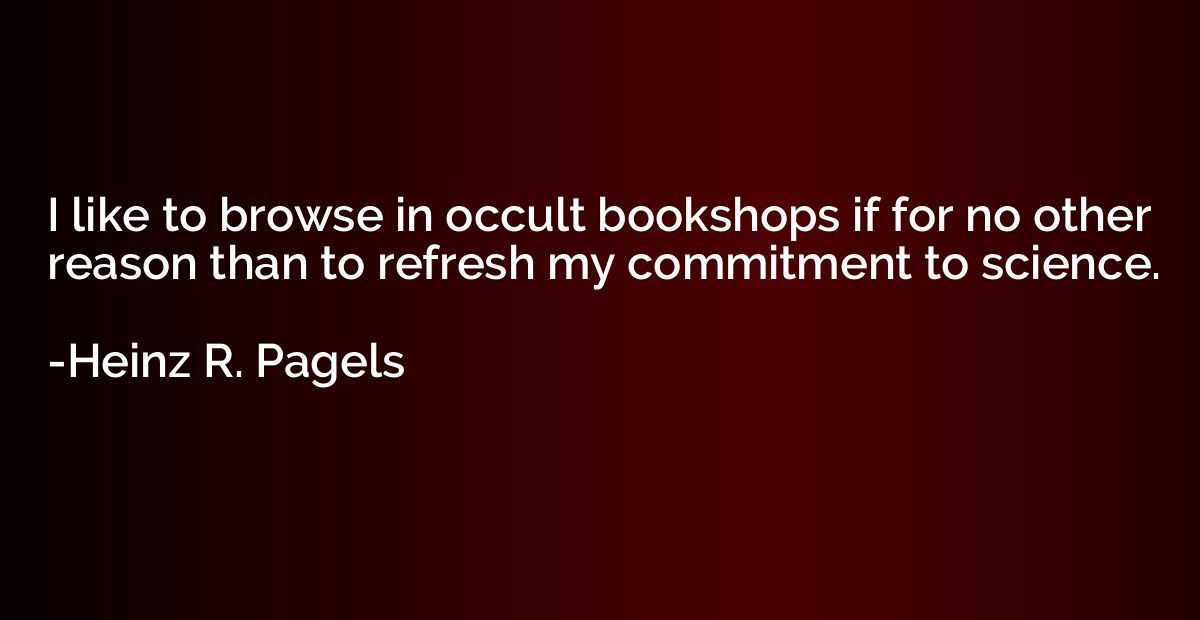Quote by Ralph Waldo Emerson
The death of a dear friend, wife, brother, lover, which seemed nothing but privation, somewhat later assumes the aspect of a guide or genius; for it commonly operates revolutions in our way of life, terminates an epoch of infancy or of youth which was waiting to be closed, breaks up a wonted occupation, or a household, or style of living, and allows the formation of new ones more friendly to the growth of character.

Summary
This quote highlights the transformative nature of loss and the unexpected ways in which it can shape our lives. Initially viewed as a painful deprivation, the death of a loved one eventually reveals itself as a catalyst for personal growth. It brings about profound changes, marking the end of a period of stagnation and paving the way for new experiences, relationships, and perspectives that foster the development of one's character. Therefore, what initially appears as a tragic loss can, over time, serve as a guide or genius, leading individuals towards positive transformations in their lives.














